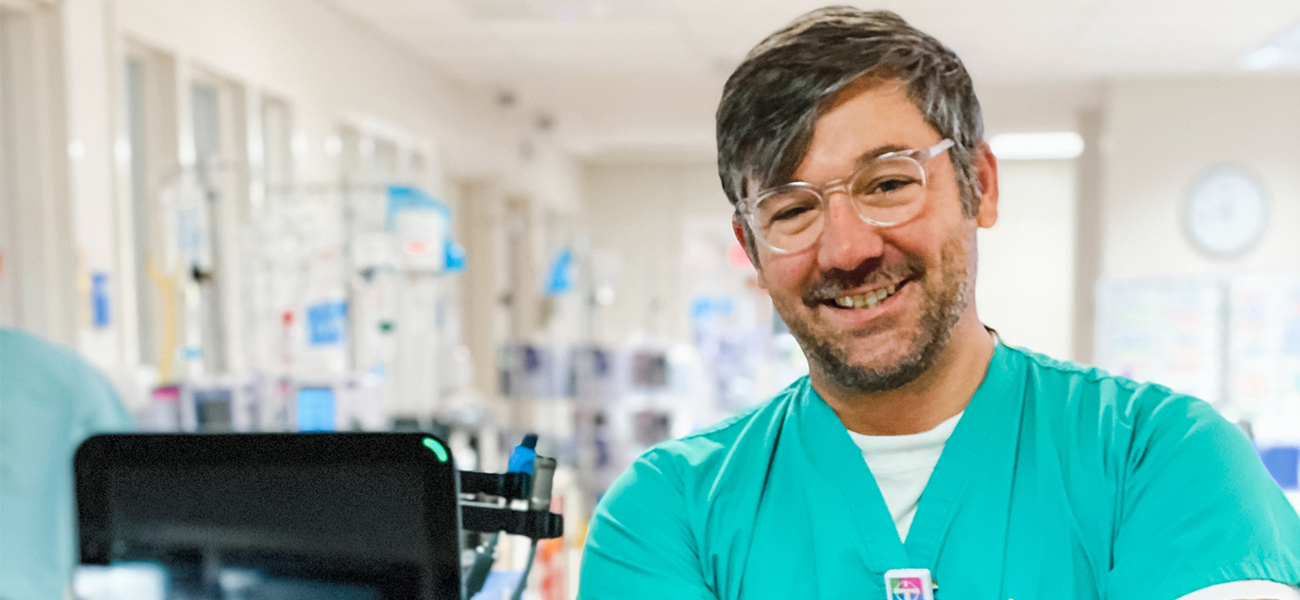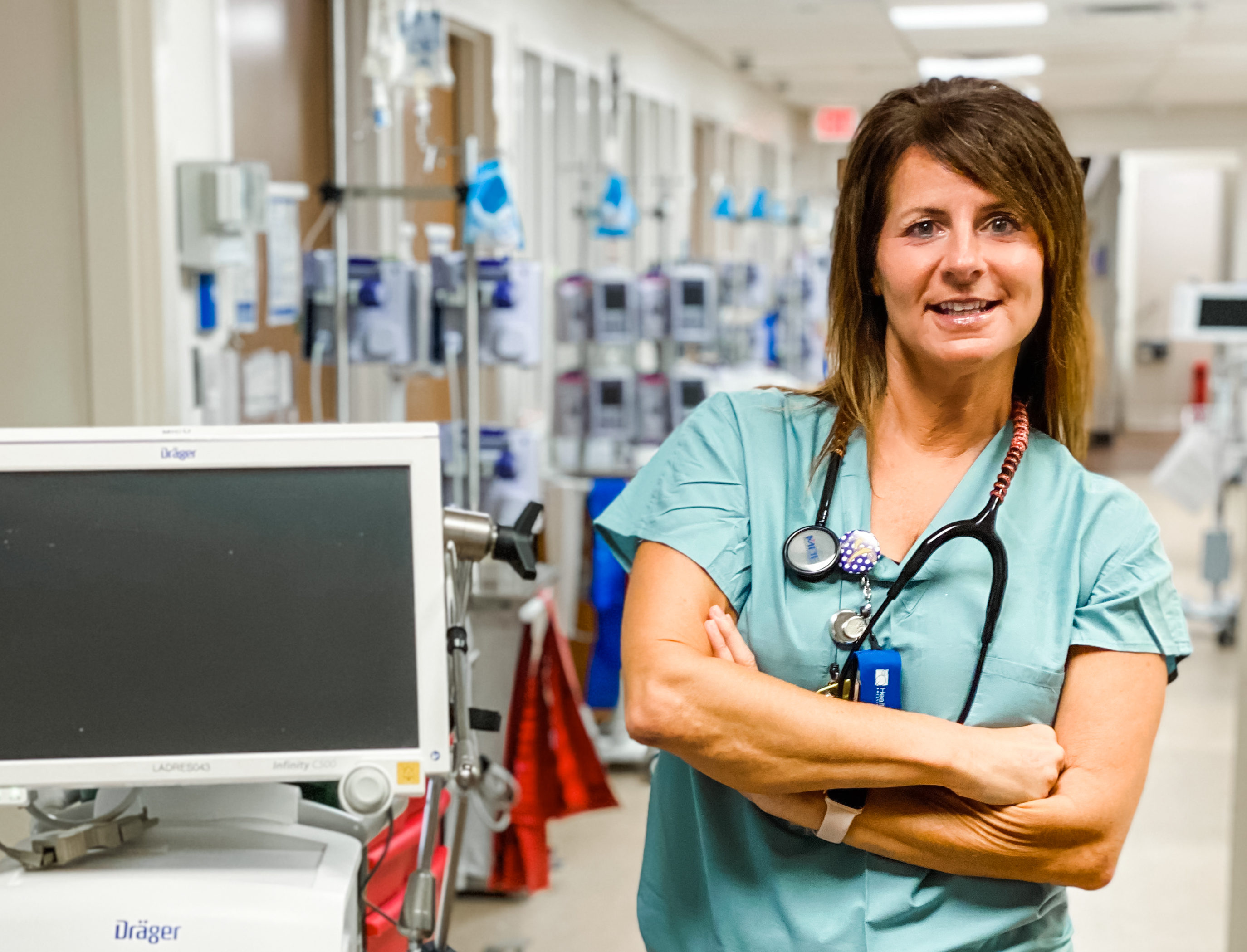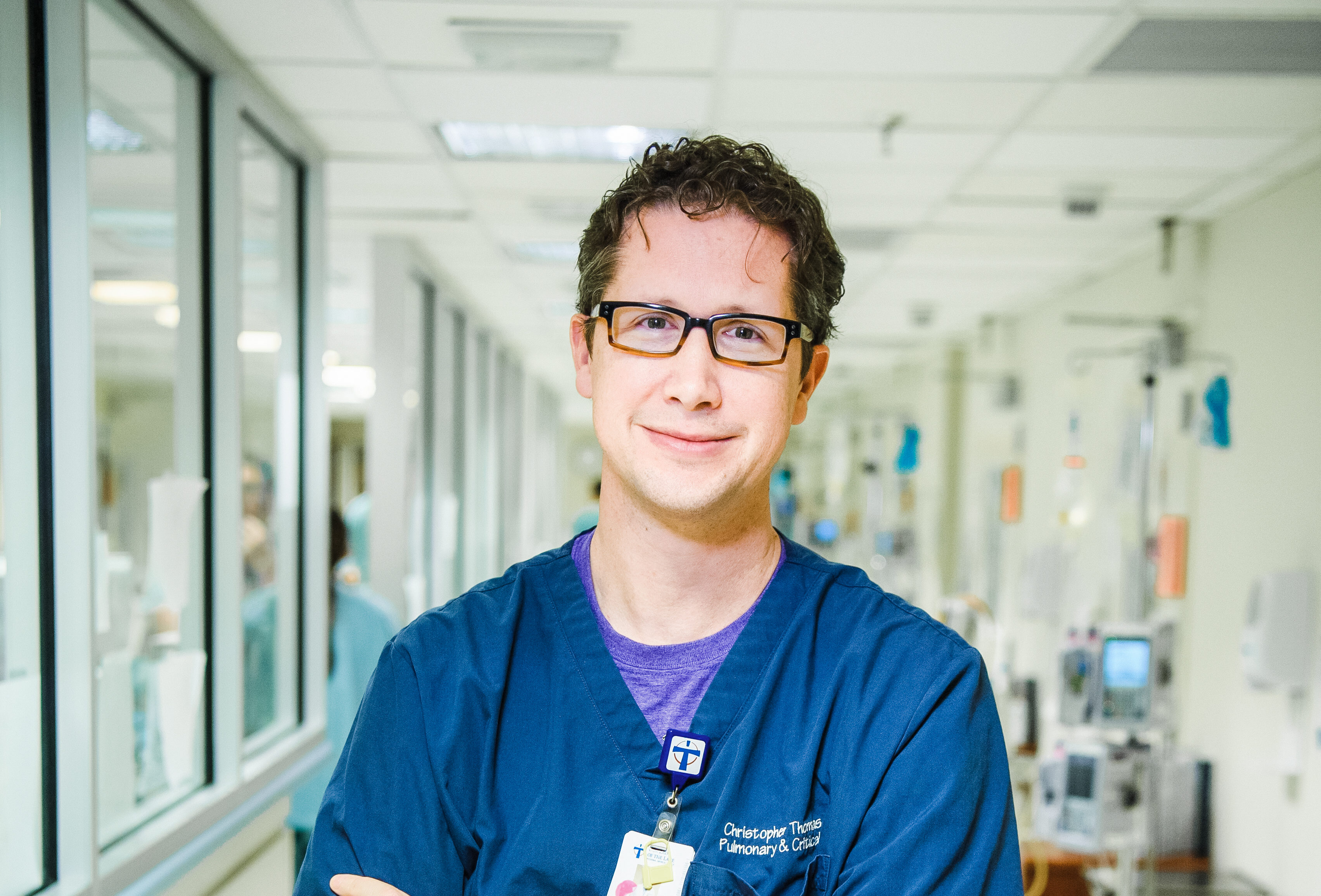
At Our Lady of the Lake, the chance to save lives is what’s been keeping the staff going
“I was working in one of our COVID units when we admitted a gentleman in his 60s with underlying lung disease. His oxygen levels were low, and we were concerned he would have to be put on mechanical ventilation. The first thing he asked me about was his wife. He told me she’d been at our hospital for three weeks, and he hadn’t been able to see her.
I went into the computer and found her in a separate COVID unit on the other side of the hospital. She had an underlying neurological disease, was on a ventilator and was doing very poorly at the time.
So we made arrangements for the man to be transferred to the complete other side of the hospital so that he could be next to his wife. The nurses were able to take him into her room and FaceTime the family while they were both in there together, which was an extraordinary feat of organization. The husband was eternally grateful.
|
|
It was a happy ending. The husband cleared the virus, and he managed to wind up avoiding being put on mechanical ventilation. The wife got better. We were able to take her off the breathing machine, and she’s now breathing on room air and is almost completely recovered. I got to be the one to place the order to take her breathing tube out because she was doing so well. I immediately went next door to tell the husband, and his eyes welled up with tears. That day, after she got her breathing tube out, we again brought the husband into his wife’s room and FaceTimed with the family so that they were able to share that victory.
This was a huge win for us. Everybody on my team was cheering and so happy.
There’s a lot of people who’ve been really, really sick despite all of our best efforts. Even with all of our knowledge pooled together, we’re unable to save a lot of these people who come in and wind up on a ventilator. When there are so many losses, even little small wins are really important to team morale.”
— Adam Ferguson, Physician assistant, Our Lady of the Lake
“We see death. I mean, I’ve been doing this for 28 years. But not to this extent. It’s like our backs are against the wall—sometimes there’s nothing we can do that’s going to even come close to helping. You know that you’re going to lose a patient before you leave your shift or before you come back the next day. One will be gone.
The saddest, most heartbreaking thing is when family members are not able to come be with their loved ones as they’re dying. Our team tries to spend time with them, holding their hands and praying for them, but it’s not the same as their own family members being here. I can’t even imagine not being able to hold my mom’s hand and tell her goodbye.

There’s one patient that sticks out to me. A young man in his 20s with comorbidities. We ended up having to intubate him and put a breathing tube down. When we do this, we have to restrain patients’ arms so that they don’t pull anything. He didn’t know why he was being restrained, and he was so scared. The look in his eyes—I’ll just never forget it, ever.
For me, the emotional stress right now outweighs the physical stress. The only thing that keeps me going is knowing that God will lift me back up to come do it again the next day.
I have also found a new meaning in having a work family. Now we spend more time with our work family than we do with our own family. We can just look at each other, through our goggles and our masks, and know: She needs an air hug.”
— Melanie Guillory, Respiratory therapist, Our Lady of the Lake
“We had a younger gentleman with three little kids who was on a breathing machine. He was one of those ones where on that first day, I didn’t know if he’d get better. But by day 14, we thought: We’re gonna get him better. That was a big change in our brains. When he finally walked out, his daughter came and hugged him.
You know, they talk about, ‘Why do you do this? What do you spend seven years training for?’ When I think about my own kids and not getting to see them as much right now as I would like to, it’s really important to get those moments. To see him get to his daughter, and for his daughter to cry from joy because she knows that he’s OK. We FaceTime the families; we’ll tell them a patient’s doing OK. But until they get to touch them, feel them, hug them—it’s not real.

That is our job: to create those moments. What sticks out to me the most from this whole experience is that guy. Because when he came in, he changed our team’s whole mindset to: We’re gonna get him home. We’re now comfortable knowing that patients can get better. And we didn’t have that when we first heard the stories coming from the West Coast. “
— Dr. Christopher Thomas, Medical director of quality and patient safety, Our Lady of the Lake
How to properly remove PPE
To reduce risk of exposure to the coronavirus, medical workers remove their safety devices in a specific chronological order. We asked physician assistant Adam Ferguson to describe the protocol he follows at Our Lady of the Lake.
1) Carefully pull off the gown. Ball it up.
2) Remove the gloves, containing them with the gown. Place both in the trash can.
3) Use hand sanitizer before putting on fresh gloves
4) Remove the goggles. Our Lady of the Lake has reusable goggles, which each worker wipes down with disinfectant. Then, wrap the goggles in an antiseptic towel. Place in a small basin to soak and sterilize.
5) Take off the gloves.
6) Remove the mask. Be careful not to touch the front of the mask. Discard.
7) Wash hands with soap and water for 20 seconds.
The unsung heroes: environmental service technicians
There are many health care workers walking into the fire of the COVID-19 outbreak. But the workers not getting enough attention are those in charge of cleaning the hospital, says Our Lady of the Lake’s Dr. Christopher Thomas.
During the pandemic, their job often means entering a room where a terminally ill patient has spread particles of the virus everywhere. But they keep disinfecting all day, every day.
“When you have an RN, RT or MD behind your name, someone gives you credit at some point in your life. These workers need credit right now. They’re unbelievable,” Thomas says. “They clean and clean and clean. They’ve been just as important in keeping me safe as the small role I play in trying to make sure that our teams are safe.”
This article was originally part of the June 2020 cover story of 225 Magazine.
|
|
|

